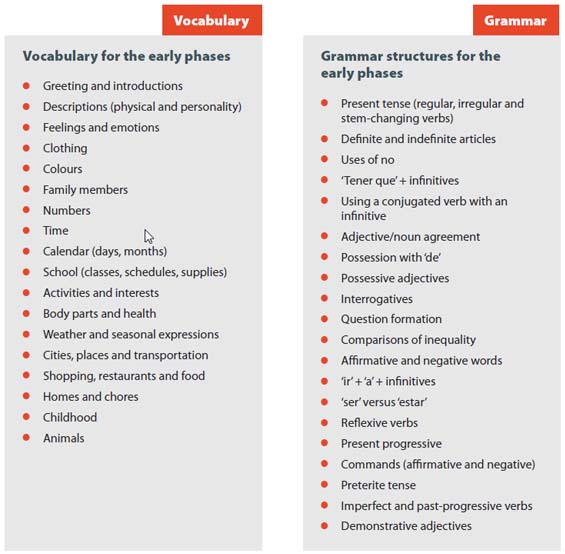Securing the basics in MYP Spanish

Preparing your MYP Spanish Language Acquisition learners to progress from day 1
Establishing a strong foundation of language skills is central to enabling confident learner progress through the MYP. But how do you manage competing priorities like phase, language levels and age-suitability while introducing more complex material and preparing for assessment?
My golden rules for early MYP learners center on fully securing the fundamentals, giving learners a solid basis from which they can progress through the programme.
Choose the right phase!
First and foremost, ensure your students are grouped into a language phase suited to their abilities. Remember, students can enter and exit MYP language acquisition at any phase. Some learners may take longer to progress from one phase to the next.
You may need to choose the phase that best fits the overall level of language acquisition for your learners. However, successful early learning hinges on phase and ability-appropriate content, learning outcomes and assessments. An emergent student should not be taking the same assessment as a capable language learner.
Page 21 of the MYP Language acquisition guide provides helpful support on identifying the right language phase for your students. I also discuss how to challenge early MYP learners on page 4 of this guide.
Start with the fundamentals
Students in the lower language phases must be given the tools they need to become confident language learners. So start with the basics. Think of language acquisition
as if you were building a house – just as a house needs a strong foundation, so do your MYP students. The vocabulary and grammar structures you introduce in
the early phases will establish a foundation that you can build upon as they continue in the programme.
For the early phases, keep it simple but interesting. Topics that learners will find personally interesting, but that have the potential to link to globally significant
themes provide a perfect foundation to build on.
Vocabulary and grammar for the early phases
Make language accessible
What is our students’ favourite topic? Themselves! For students in the earlier phases, keep topics more personal. Get them talking about themselves and their families, school, free time activities, vacations, family celebrations – anything that they can relate to. The more we can encourage them to engage with the language early in their journey, the more confidence they will develop.
 |
Maureen Hunt is a Head of World Languages with more than 20 years' teaching experience. She has consulted on the MYP Language Acquisition curriculum and assessments, as well as the pilot ePortfolio. Maureen conducts workshops for MYP and DP teachers.
|
More support
Secure MYP Spanish language foundations
Build the foundation learners need for DP. Develop understanding in phases 1 and 2, and drive achievement in phases 3 and 4.
Search results
No results were found© 2024 Oxford University Press. All rights reserved.



